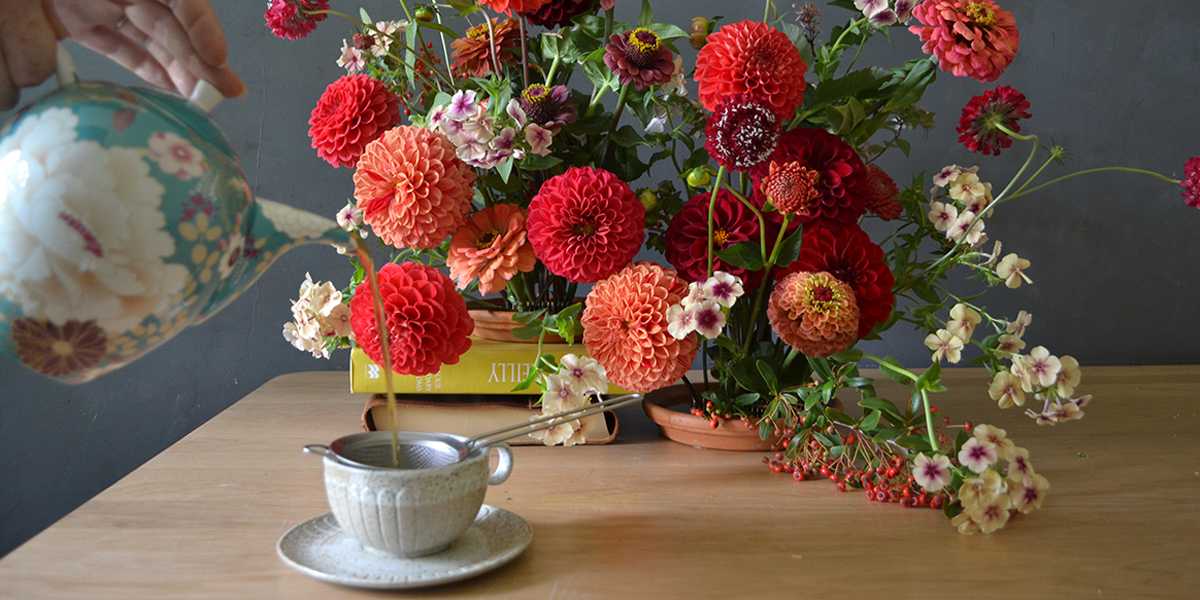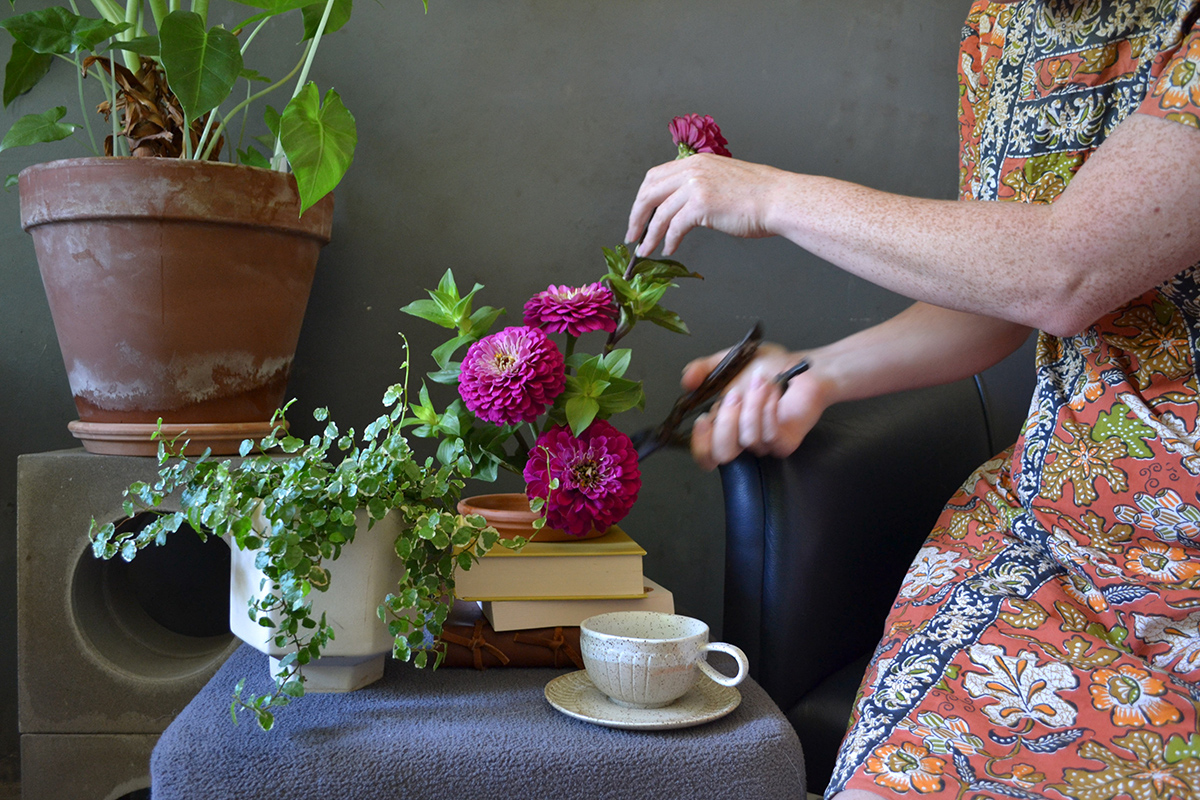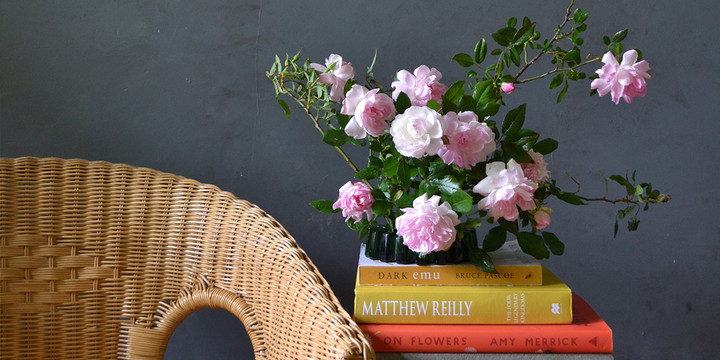
Kenzans have been used for centuries to create beautiful, simple arrangements that do not require bunches and bunches of flowers to look amazing. Rather, a few stems can work wonderfully, letting the shape and form of each flower shine.
They are easy to work with and can expand the type of containers that can be used for arrangements - anything that can hold enough water and your kenzan can be transformed into a vase. We have used a jewellery dish, a shell, a vintage ashtray and the base tray from a pot plant, all to great effect.
Let your imagination run wild when choosing your container.
The idea with our kenzans is that you do not need to always purchase flowers to be able to make a beautiful arrangement. Rather, use what you already have access to; the geranium flowing onto the footpath in your neighbourhood, the grasses in the abandoned lot down the road, the dried stems you kept from an arrangement gifted in the past, or cuttings from your pots or garden (if you have one).

The beauty with making arrangements with these kinds of flowers and foliages is that they do not need to last for weeks like purchased flowers would. You can use things that may only last a day or two, and then simply make another arrangement.
They are perfect for making your own floral creations to dress you dinner table when entertaining friends, or for a simple piece on the coffee table.
Below are some helpful tips for using your kenzan, how to choose which size you need, and how to select the right type of stems for your size kenzan.
Using A Kenzan
Start low & build height.
To make sure your Kenzan doesn't tip while you're creating your masterpiece, start by placing your largest blooms low in the pins, and work your way up to the taller stems.
Work evenly around the kenzan.
Adding all your stems to one side will cause the arrangement to be unbalanced. Make sure you add stems evenly across the base so that the weight is balanced.
Be Careful!
The pins are not extremely sharp, but if you push a stem in hard you can hurt yourself, so be careful until you get used to using your kenzan!
Split woody stems.
Thicker stems like blossom, lilac, natives or camellia branches can be used in the long kenzans, as they are the heaviest. You could also use them in the medium size, just don't cut them too tall. To make it easier to insert them into the pins, cut upwards a few centimetres into the stem in a "cross" to split it.
Top up the water regularly.
If you are using a shallow dish, keep a close eye on the water level - it may need a daily top-up.
Clean your Kenzan.
Once you've finished using your kenzan, clean off any bits that get stuck in the pins with an old toothbrush & hot water, leave upside down to dry, and store safely back in its box ready for your next creation.
Choosing the right size kenzan.
The size you need will depend on how large you want to make your arrangements. As you go up in kenzan size, you will be able to accommodate more stems, more height, and thicker branches.
As a guide, the small kenzan is perfect for creating very simple arrangements with just a few stems. Soft, light (in weight), and thinner stems can be used.
The medium size kenzan will accommodate thicker stems, but not woody branches. More height and more flowers can be used than the small size.
The large kenzan is the heaviest, and can accommodate thicker branches and more height. Perfect for a centrepiece on your dining table!
You can browse our range of kenzans here. They make such a lovely gift for yourself, an avid gardener, or a florist-at-heart!
